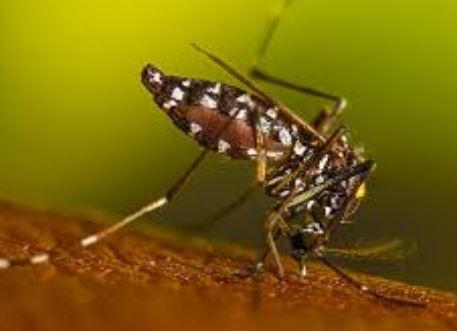Mosquitoes usually prefer humid conditions, however, various changes have caused their numbers to surge throughout the Las Vegas Valley.
In southern Nevada, a mix of insecticide resistance, climate change, and urban development are creating favorable environments for these blood-sucking insects.

In Clark County, the dominant species include Aedes aegypti mosquitos, the main spreaders of dengue, and Cluex mosquitoes, which transmit the West Nile virus.
To make matters worse, scientists have found that mosquitoes are becoming more resistant to insecticides.
Louisa Messenger, an assistant professor in environmental and global health at the University of Nevada, called the situation “a ticking time bomb.”
For years, she has raised concerns about Las Vegas’s vulnerability to mosquito-borne illnesses such as West Nile virus and dengue fever. Dengue cases, in particular, have been rising sharply across North and South America.
The Centers for Disease Control and Prevention reported more than 13 million cases across the two continents last year.

Messenger pointed out that Las Vegas welcomes more than 48 million visitors each year, and it would take only a handful of mosquito bites to spark local transmission.
In 2024, the city recorded 26 human cases of West Nile virus.
Testing has also revealed that most mosquitoes in the area carried the virus, meaning the risk of exposure was high.
Although no human cases have been confirmed so far this year, mosquitoes in several areas have tested positive for the virus.
The factors that drive the outbreaks in certain years remain unclear.
Since 2004, the Southern Nevada Health District has been monitoring mosquito activity in the Las Vegas Valley, tracking which species are present each year and where mosquitoes have tested positive for viruses.

In 2017, the mosquitoes appeared only in a handful of ZIP codes, but as of 2025, they can be found in 48 ZIP codes across the Las Vegas Valley.
Aedes aegypti mosquitoes are not only capable of transmitting diseases but are also known for being aggressive biters.
Unlike the Culex species, which usually breed near large bodies of water, Aedes aegypti prefer shallow, standing water.
Urban development in Las Vegas, including human-made lakes and golf courses, have also created additional homes for these insects.
Climate change is another contributing factor, as mosquitoes thrive in warmer conditions. Rising temperatures also increase rainfall and humidity, both of which create favorable environments for mosquitoes.








